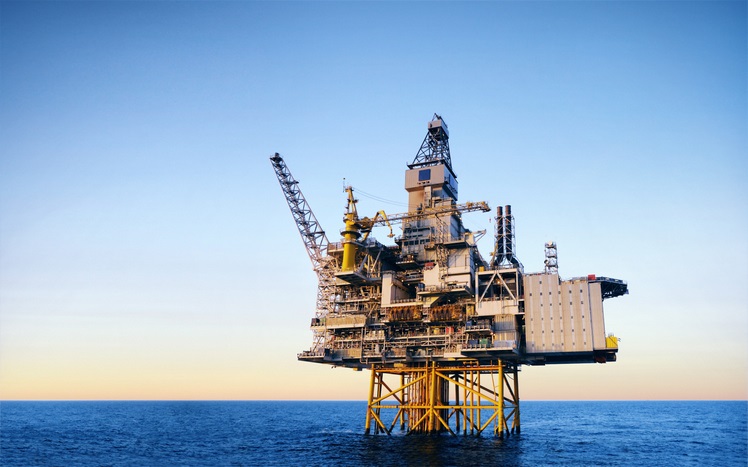Premier Oil reverts to Plan B as Chrysaor takes over
Is this good news for one of the ‘zombie’ companies recently identified by our own analyst?
6th October 2020 13:24
by Graeme Evans from interactive investor
Is this good news for one of the ‘zombie’ companies recently identified by our own analyst?

Another chapter in an extraordinary year for oil and gas investors was written by Premier Oil (LSE:PMO) today when the North Sea producer unveiled a debt-busting reverse takeover deal.
The proposed merger with privately owned Chrysaor creates the largest UK-listed independent oil and gas company, but leaves Premier's beleaguered shareholders with just 5% of the combined entity.
Premier shares still rose 9% to 16.6p, however, as the proposal is likely to be more palatable than existing plans for a refinancing and dilutive equity raise of up to US$530 million.
Analysts at Jefferies said today's Plan B option for wiping out Premier's $2.7 billion debt mountain looked to value the company's equity at between $200 million and $250 million, whereas last night's market value stood at $180 million.
They added: “We estimate Premier's shareholders gain a low premium merger with upside from materially reduced balance sheet risk and tax synergies.”
Premier's board said the deal was broadly comparable with the refinancing but offered the benefit of greater certainty at a time of challenging trading conditions.
Chairman Roy Franklin called the merger a “new and exciting chapter” in Premier's history, with CEO Tony Durrant hailing the “significant industrial, commercial and financial logic”.
Chrysaor, whose largest shareholder is energy investor Harbour, was founded in 2007 and expanded in 2017 with the $3 billion purchase of UK oil and gas assets from Royal Dutch Shell and a similar sized deal with ConocoPhillips in 2019.
It is the operator of the Armada, Everest and Lomond production hubs in North Sea, while it also has non-operated interests in some of the UK's largest producing fields, including Elgin-Franklin, Buzzard and Clair.
Premier was founded in 1934 and acquired its first interest in the North Sea in 1971. It has since expanded its presence on the UK Continental Shelf, while also holding significant oil and gas interests in Indonesia, Vietnam, the Falkland Islands and Mexico.
The combined production of 250,000 barrels of oil a day will be accompanied by substantial cost and tax synergies, with the use of Premier's $4.1 billion of UK tax losses set to generate significant value for shareholders. Premier's planned UK North Sea asset acquisitions from BP will be dropped as tax loss synergies are sufficient from the expanded portfolio.
Former Shell executive and current Harbour CEO Linda Cook will lead the new group, which intends to retain Premier's London listing.
The deal is another significant development during a year in which oil companies of all sizes are grappling with sharply reduced demand in the wake of the Covid-19 pandemic. The price of Brent crude is currently around $40 a barrel, but had been below $20 a barrel in April.
- Stockwatch: how to play these high-risk zombie oil stocks
- Take control of your retirement planning with our award-winning, low-cost Self-Invested Personal Pension (SIPP)
Our own companies analyst Edmond Jackson said last month that the environment had made Premier and fellow debt-laden Tullow Oil (LSE:TLW) the proverbial “zombie” stocks where shareholder returns are swamped by debt management costs until oil prices can recover.
Investors are also faced with an acceleration in the shift towards a low carbon world, with advanced biofuels, hydrogen and charging for battery-electric vehicles part of this new focus. Royal Dutch Shell (LSE:RDSB), which recently cut its dividend for the first time since the Second World War, last week announced plans to cut as many as 9,000 jobs by the end of 2022. Arch-rival BP (LSE:BP.) previously announced 10,000 job losses as it pursues its own move to become a low-carbon energy producer.
These articles are provided for information purposes only. Occasionally, an opinion about whether to buy or sell a specific investment may be provided by third parties. The content is not intended to be a personal recommendation to buy or sell any financial instrument or product, or to adopt any investment strategy as it is not provided based on an assessment of your investing knowledge and experience, your financial situation or your investment objectives. The value of your investments, and the income derived from them, may go down as well as up. You may not get back all the money that you invest. The investments referred to in this article may not be suitable for all investors, and if in doubt, an investor should seek advice from a qualified investment adviser.
Full performance can be found on the company or index summary page on the interactive investor website. Simply click on the company's or index name highlighted in the article.